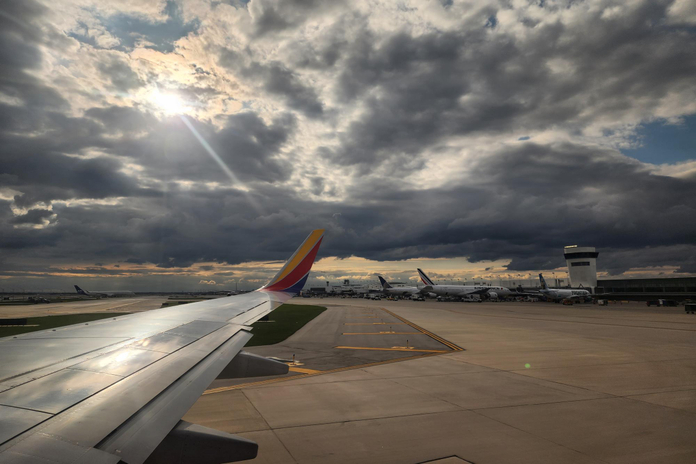Southwest Airlines (NYSE:LUV) has announced plans to eliminate its unique open seating policy, a move aimed at increasing revenue but risking the alienation of loyal customers. This significant shift marks the end of an era for the Dallas-based airline, which has allowed passengers to choose their own seats upon boarding for over 50 years.
The End of an Era
Southwest’s open seating policy was the brainchild of its egalitarian-minded founder, Herb Kelleher. This practice has been a core part of the airline’s brand identity, promoting a sense of equality among passengers. However, disappointing earnings and share performance since the pandemic, coupled with pressure from activist investor Elliott Management, have led to this pivotal change. The airline announced it will transition to assigned seating and offer seats with extra legroom, with more details to be shared at its investor day in September.
Challenges and Opportunities
The lack of assigned and extra-legroom seating has been a barrier to attracting premium travelers, according to Henry Harteveldt, founder of travel consultancy Atmosphere Research Group. “As a business, you always want to give your customers a reason to pay you more,” he said.
Southwest’s shares have lost nearly half their value over the past three years, even as the S&P 500 index has gained 25%. The company’s trailing price-to-earnings ratio stands at 33, far above the industry median of 4.86. Only two out of 18 analysts have a “buy” rating on the stock, according to LSEG data. With its operating margin declining to 0.2% in the first half of this year from more than 13% in 2019, Southwest needs new high-margin revenue streams to offset cost pressures and boost profit.
Strategic Transformation
Southwest CEO Bob Jordan described the change as a “strategic transformation” expected to generate over $1 billion in annual revenue and broaden the airline’s appeal. Analysts at Raymond James forecast that these changes could contribute 95 cents a share to the airline’s earnings next year. Competing airlines like Delta, United, and Alaska Airlines have successfully relied on premium travelers to protect their profits, a market Southwest now aims to penetrate.
Investor and Customer Reactions
Elliott Investment Management criticized the changes as “too little, too late,” reiterating its demand for new leadership. The firm seeks to oust CEO Jordan and board chair Gary Kelly, arguing that the company needs fresh perspectives. While Jordan expressed willingness to consider Elliott’s feedback, he noted that the activist investor had not shown a willingness to engage in meaningful conversations.
Southwest previously considered switching to assigned seating in 2006 but abandoned the idea after tests indicated it might hurt efficiency and increase boarding times by 1 to 4 minutes. The switch could also raise labor costs by requiring more agents for boarding. The airline has surveyed tens of thousands of customers, finding that many cited its open seating policy as a key reason for choosing Southwest.
Customer Concerns
How customers will respond to this change remains uncertain. Some travelers have questioned whether Southwest will also abandon its policy of no fees for bags. Jordan reassured customers that there are no plans to start charging for bags, stating that the no-bag-fee policy is the top reason customers choose Southwest.
Despite these reassurances, the end of open seating is seen as a major blow to Southwest’s unique appeal. “Southwest, I fear you are losing your differentiation with this choice,” wrote Robb Winger, a self-described Southwest loyalist, on LinkedIn.
Conclusion
Southwest Airlines’ decision to end its open seating policy and introduce assigned seats represents a significant shift in its business strategy. While aimed at boosting revenue and attracting premium travelers, the move comes with risks, including potential backlash from loyal customers. As the airline navigates this transition, its ability to market and sell these changes effectively will be crucial to its success. Investors and customers alike will be closely watching how Southwest adapts to this new chapter in its history.
Featured Image: Freepik









